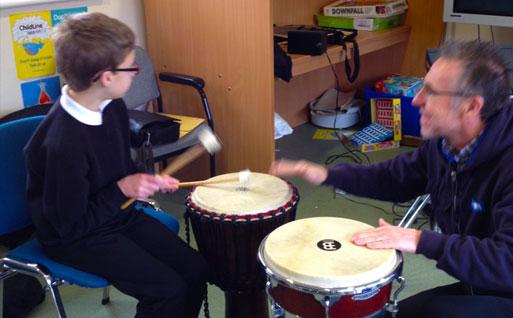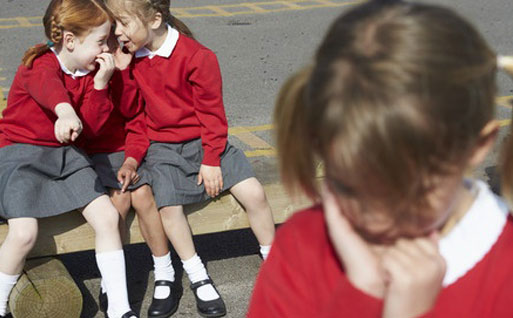WORK IN SCHOOLS
TIME OUT DRUM THERAPY works with staff in school to support children and young people on a one-to-one basis, who struggle to engage with the curriculum and who need a little extra help and support. Through drum therapy, children learn to manage their feelings in more appropriate ways, to gain control of and improve their inappropriate behaviour and to maximise the possibility of reaching their full potential.


Time Out Drum Therapy
holds a service level agreement to work with Looked After Children in North Lincolnshire; is a partner of the North Lincolnshire Music Support Service Hub and an accredited alternative provider for young people excluded from mainstream education.
WITHIN SCHOOL ENVIRONMENTS we work with young people who have learning or physical disabilities and issues around behaviours that challenge and can become aggressive, to consider and improve the following:
- Difficulties with levels of challenging behaviour and emotional distress
- Difficulties with personal and group behaviour management
- Difficulties with levels of social and emotional development
- Difficulties with disruptive behaviour, including anti-social behaviour
- Difficulties communicating and being heard
- Difficulties that require additional help and support


THESE ARE SOME OF THE EFFECTS these issues can have upon the learning environment:
- Disruption of other pupils and students
- Disruption of engagement with the curriculum
- Difficulties with managing challenging behaviour and poor behaviour in the classroom
- Extra provision of support for inappropriate behaviour
- A reduction in attendance levels
- An increase in the number of exclusions/managed transfers
- Tension and conflict between students, staff and parents
- A negative impact upon school performance
SINCE 2013 Time Out Drum Therapy has been working in a number of schools in North Lincolnshire to consider and address issues such as:
- Unmanageable levels of stress and anxiety
- Low self esteem
- Anger
- Poverty
- Substance misuse in the home
- Chronic parental illness
- Unresolved grief
- Domestic violence
- Peer pressure
- Language and cultural differences
- Discrimination
- Inappropriate learned behaviour
- Bullying
- Pupils’ ineffective management of their behaviour

THROUGH DRUM THERAPY
children are able to express some of the difficult feelings they experience, in a safe and secure environment. These difficult feelings often lead to behaviours that challenge. When these feelings are expressed, children feel a sense of calm, and are better able to think rationally and take control of their behaviour.
INTERVENTIONS through drum therapy serve as both a therapeutic tool and a response to disruptive and/or inappropriate behaviour. These have been effective in enabling and empowering changes in behaviour of those referred to the service. Feedback from schools has been positive.
Time Out Drum Therapy, through practical and specific interventions with young people, has supported school staff in their effective behaviour management of children in the classroom. This has also led to positive behaviour management by the children themselves.
RESTORATIVE PRACTICE IN SCHOOLS
Time Out Drum Therapy uses a restorative approach when working with children and young people. This includes empowering change in levels of responsibility and accountability and supporting opportunities for repairing harm.
Through drum therapy, young people are given space to express the thoughts and feelings that lie behind their challenging behaviour. They are given support and encouragement to consider who has been affected by their behaviour and to take responsibility for it, and they are given the opportunity to make amends.
Through this process they develop trust, respect and a belief in their own ability to behave differently, which increases their self-esteem and motivates them to find a way forward.
By using a restorative approach, children and young people are given the opportunity to restore their relationship with themselves and their relationships with other people. It also safeguards them from a deterioration in their behaviour, which leads to isolation and exclusion, and supports them towards reintegration with their peers.


FEEDBACK
FEEDBACK from Baysgarth School:
Young Person has taken responsibility for his feelings and has also had less exclusions and detentions.
Young Person has been able to off load issues with parents and see a way forward on how to deal with them. Calmer self-esteem. More focussed in lessons.
Young Person has found drum therapy an outlet for his frustrations and behaviour in School. Young Person is starting to address issues rather than walk away from these and will ask for help more readily.
Young Person enjoys talking and playing the drums. Self-esteem is growing and a willingness to engage in these sessions. Young Person is starting to think about the consequences for her actions.
Young Person has had less Exclusions since attending Drum Therapy. Young Person – “Drum Therapy is Fun.”


FEEDBACK from Castledyke Primary School:
- Better learning outcomes
- Resilience has improved
- New friendships
- Better attitude to learning
- Fully integrated in classroom
- Better relationships developed
- Remains in classroom more regularly
- Raised self esteem
- Increased attention during core subjects


